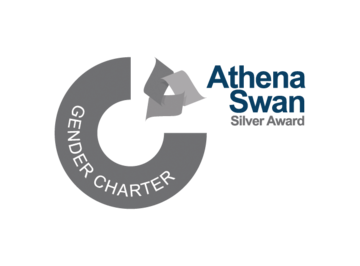The University of Oxford was a founder member of the Athena Swan Charter and has held an institutional Athena Swan Bronze award since 2006.
2023 Institutional Silver Award
In February 2023, for the first time, the University was awarded an institutional Silver award, acknowledging the progress that has been made in addressing a number of gender gaps across the University over the last five years.
Main areas of achievement:
- Introducing a suite of measures to support parents and carers, including Day 1 entitlement to paid family leave, carer’s leave, career break options, paid fertility treatment leave, and expanded adoption leave.
- Sustained progress in addressing the gender gap in academic roles, with female staff comprising 27% of all professors (up from 18% in 2012), 20% of Statutory Professors (up from 11% in 2012) and 36% of Associate Professors, without title (up from 29% in 2012).
- A huge leap in the number of departments/faculties with Athena Swan awards over the last ten years, from 7 awards in 2012 to 42 awards (21 Silver and 21 Bronze). In 2022, for the first time, Medical Sciences also became the first all-Silver division, with 16 departmental Silver awards.
The 2023 action plan lays out 8 objectives to be achieved by 2028:
- Objective 1: Strengthen department/faculty engagement and coordination of EDI work
- Objective 2: Ensure University decision-making and governance structures are representative of the University community and inclusive in practice and culture
- Objective 3: Continue to increase the proportion of women in senior academic roles
- Objective 4: Address the gendered aspects of caring and wellbeing that negatively impact on career progression and retention
- Objective 5: Tackle bullying and harassment across the University
- Objective 6: Embed inclusive research practices across the university
- Objective 7: Increase levels of satisfaction and inclusion amongst Trans and non-binary staff and students
- Objective 8: Address issues of gendered job segregation impacting the gender pay gap
The Athena Swan 2023 action plan was developed in partnership with the race equality charter action plan, and supports measures already being undertaken in the Concordat action plan for early career researchers.
The Joint Committee on Equality, Diversity and Inclusion (EDI) acts as the Self Assessment Team for the Athena Swan action plan, and is accountable for delivery of the plan objectives.
2022 Institutional Athena Swan Application and Action Plan



